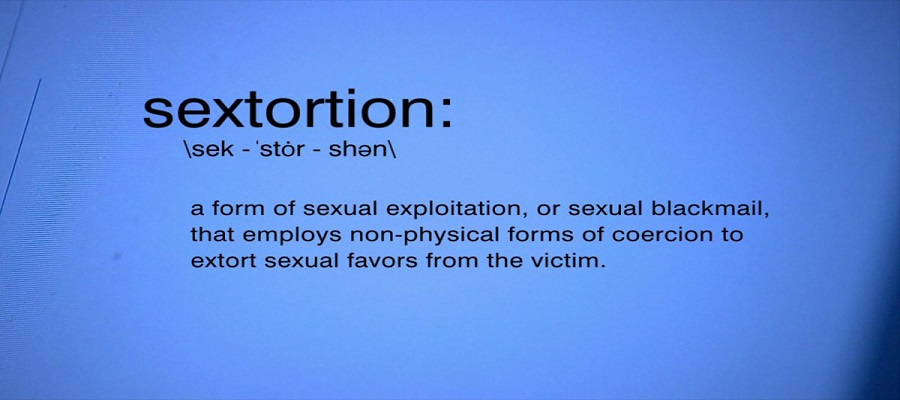General News
Solve Electricity Theft to Save the Power Sector

The FG has taken vital steps in resuscitating the electricity sector – from privatisation, intervention funds, meter procurement, and investment in new power plants to mention a few.
It is understandable that these fundamental changes will take time to fully turn the sector around and assure Nigerians of constant power supply.
As the minister of Power has recently pointed out however, with technical and commercial losses running at 75% in some areas, the entire system will struggle to make the necessary investment to ensure a sustainable and reliable power system.
A large percentage (perhaps, 50-60%) of these losses can be attributed to energy theft – people consuming power without paying for it.
This can happen either inadvertently or deliberately. Inadvertently because the power companies are not metering and collecting the payment.
This is usually a smaller percentage because the power companies simply use estimated billing to cover for the unmetered consumers.
The deliberate stealing of electricity is widespread and happens through various schemes including – direct connection to the overhead low tension distribution cables, bypassing the meter so that only a small load is connected to it while the rest are connected directly to the supply behind the meter or tampering with the meter to make its reading inaccurate.
The deliberate stealing of electricity is more often than not aided and abetted by experienced (current or past) technicians who understand how the systems work.
In these instances, the use of smart meters which are able to send their status readings to a central server are easily outfoxed.
The smart meter will only have records of the electricity passing through the network it is connected to.
If it is bypassed, or the connection is directly to the distribution line, the smart meter is unable to detect and report the anomaly.
When the meter is itself tampered with by experienced technicians, they may also be able to fool the meter into not reporting the breach.
Smart meters depend on being able to communicate their status to a central server which can then analyse the information and hopefully be able to infer thefts using different algorithms.
Considering the amount of data each meter produces, few organisations can afford the computing power needed to execute these algorithms in near real time.
For instance in the case of Austin Energy in the US with 500,000 meters, the utility’s yearly data storage needs grew from 20,000 MB to 200,000 MB in a relatively short period (each meter producing in excess of 140MB a year). It is of very little use detecting theft once a month.
If done in real time, perpetrators can be caught and prosecuted. If done in real time, the theft can also be stopped.
Analysing the large quantity of data to detect theft in real time using data from smart meters in one central server soon exceeds the cost of the theft.
Working with technical partners around the globe, CWG Plc has developed a solution that makes it possible to detect theft and alert the power companies with the precise location where the theft is happening in near real time, not more than 3 minutes after it occurs without requiring large computers and complex expensive algorithms.
This system uses distributed microcomputers mounted on pole top units, continuously applying Kirchokoff’s laws of electricity flow to determine when the energy flows do not balance and using that to detect energy losses most likely due to theft.
Once a theft is detected, the central server is alerted and the alert is passed on to line men or other dedicated technicians who can be mobilised to investigate.
The unit can also cut off power if needed. This system is far cheaper and more robust than the ‘smart meter and super computer combo’ being promoted by most other vendors.
We can very quickly reduce the losses due to theft by more than 80% within a few months. In addition our system is able to carry out metering or integrate with the meters now being deployed by the DISCOS. If those meters are deployed by themselves without a system such as ours, the impact on reducing theft will be minimal.
James Agada, is Chief Technology Officer, CWG Plc
General News
FBI Sends Team to Nigeria to Track Down ‘Sextortion’ Scammers

Sextortion scams have become so widespread that the Federal Bureau of Investigation (FBI) is sending agents to Nigeria to help track down the perpetrators.

The agency’s “Operation Artemis” has led to the arrest of 22 Nigerians, half of whom are “directly linked” to sextortion incidents in which victims died by suicide.
Sextortion scams often begin on social media, where perpetrators pose as attractive young women to lure victims—typically unsuspecting teenage boys—into sending nude photos or explicit videos.
Once the images are obtained, the scammers turn to blackmail, threatening to leak the content unless the victim pays up.
In some cases, the sextortion results in teenage victims taking their own lives over fear of the nudes leaking.
In Thursday’s announcement, the FBI noted it’s been “observing a significant increase over the last three years in financially motivated sextortion schemes targeting young males ages 14-17, resulting in more than 20 minor victims dying by suicide.”
The agency is also facing a 30% year-over-year increase in sextortion-related tips.
“According to the FBI’s Internet Crime Complaint Center or IC3, there were over 54,000 [extortion-related] victims in 2024, up from 34,000 in 2023,” it said.
“Over the last two years there have been nearly $65 million dollars in financial losses due to this crime.”
In response, the FBI says 55 agency field offices came together to identify “nearly 3,000 victims of financially motivated sextortion,” which led investigators to track down the culprits in Nigeria.
The US has since extradited at least three suspects from Nigeria.
“These subjects will now be held accountable in the American justice system, with more subjects still awaiting extraditions in Nigeria,” the FBI added.
General News
FBNQuest Trustees Hosts Estate Planning Summit in Port Harcourt

FBNQuest Trustees Limited, a subsidiary of First HoldCo Plc, provider of trust solutions to individuals, corporate and government institutions, recently hosted its inaugural Estate Planning Summit in Port Harcourt.

The maiden event, themed: Wealth Preservation and Transfer without Hassle, was organised to strategically enlighten and empower the participants with the necessary knowledge required to seamlessly manage and successfully transfer their assets and legacies to their beneficiaries.
Speaking at the event, the Acting Managing Director, FBNQuest Trustees, Babajide Fetuga, stressed the critical importance of seeking professional guidance on estate planning, preservation and transfer of wealth to successive generations and other beneficiaries. He stated that a professionally drafted estate plan gives no room for any form of ambiguity; hence, it provides clear directives on what to do at any time.
‘’The potential consequences of not having an estate plan include perennial family disputes and protracted court cases, which may result in a huge financial burden and foster long-lasting resentments among loved ones if proactive steps are not undertaken to protect individuals, families and loved ones from avoidable stress.
‘’Understanding the values of wealth preservation is crucial. It is vital to recognize the importance of having a strategic estate planning blueprint, and we are determined to educate you with knowledge that not only informs but inspires you to take the necessary actions as you move forward,” he added.
FBNQuest Trustees is dedicated to promoting effective estate planning solutions. The company has a track record of successfully hosting estate planning summits in Abuja, Lagos, Minna and Ibadan and continues to emphasize the importance of thoughtful planning through initiatives like the Legacy Series Campaign and the Legacy Room podcast.
The summit featured industry experts who delivered valuable insights on the significance of wealth preservation and transfer, addressing the residents of Port Harcourt and its environs. The discussions focused on practical approaches and proactive measures attendees can adopt to manage their estates effectively and minimize potential future challenges.
General News
Meta Tightens Spam Controls to Elevate Original Content on Facebook

Meta has announced new measures to tackle spammy content on Facebook, aiming to enhance the Feed experience and support authentic creators. These updates are part of Meta’s broader commitment to fostering a platform where meaningful interactions thrive.

The initiative includes reducing the visibility of spammy content. Accounts that share duplicate posts, irrelevant captions, or excessive hashtags will lose reach and monetization eligibility. Spam networks that create multiple accounts to share identical content will also face decreased visibility.
Meta is increasing efforts to detect and remove fake accounts and pages involved in coordinated engagement or impersonation.
In 2024, the platform removed millions of such accounts. Features in Moderation Assist have been enhanced to auto-hide comments from suspected fake identities, and creators can now report impersonators directly in comments.
To further support original content, Meta continues to improve its Rights Manager tool, helping creators protect their work. Updated guidance aims to encourage creators to share authentic and engaging content to ensure their success on the platform.
Oluwasola Obagbemi, Head of Communications for Sub-Saharan Africa at Meta, emphasized the importance of creating an environment where creators who invest in meaningful content are recognized and rewarded.
Meta remains committed to fostering a positive and authentic environment for creators and users alike. Let me know if you’d like more adjustments!

 Telecom3 days ago
Telecom3 days agoNigeria Hits 1 Terabit Internet Traffic Milestone

 E-Financial3 days ago
E-Financial3 days agoFCMB Capital Markets Leads ₦11.85bn GLNG Bond for LNG Plant Expansion

 General News3 days ago
General News3 days agoFG to Introduce New Tax Credit Scheme to Replace Pioneer Status Incentive

 Telecom3 days ago
Telecom3 days agoMTN Nigeria Faces Class Action Lawsuit over Alleged Data Mismanagement

 News3 days ago
News3 days agoIMF Downgrades Nigeria’s Economic Growth Forecast Amid Oil Price Decline

 News3 days ago
News3 days agoNITDA Fixes Date for Inaugural Meeting of the Startup Consultative Forum

 E-Financial2 days ago
E-Financial2 days agoUnion Bank’s Edu360 Initiative Scores Big for Nigerian Football Development

 Telecom3 days ago
Telecom3 days agoMart Networks Unveils Invinsense 6.0: AI-Powered Cybersecurity Revolution in Africa




























